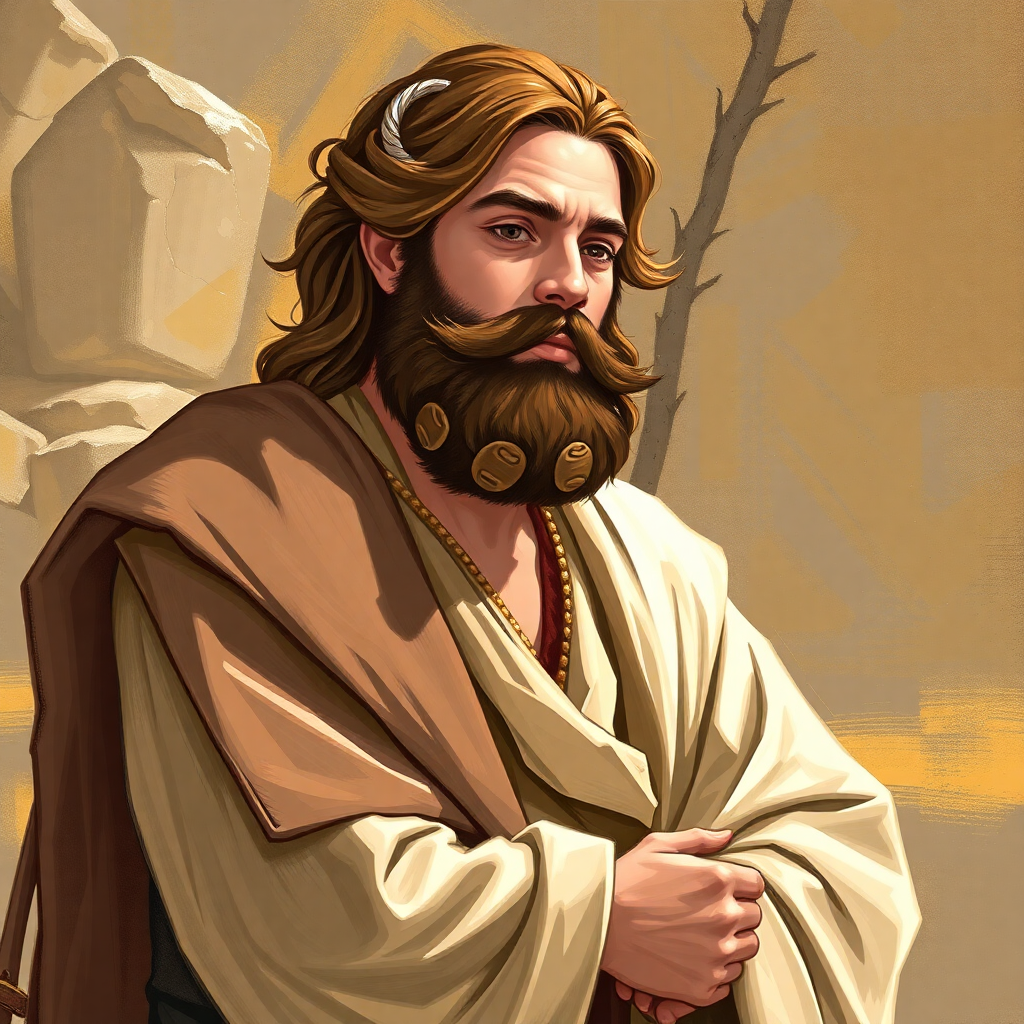Elijah: The Fiery Prophet of Ancient Israel
The most famous episode in Elijah's ministry was the dramatic confrontation on Mount Carmel between the prophet and 450 prophets of Baal. This contest was designed to demonstrate once and for all who was the true God of Israel.
Elijah stands as one of the most dramatic and influential figures in biblical history, a prophet whose ministry shaped the spiritual landscape of ancient Israel during one of its most turbulent periods. Known for his unwavering faith, miraculous deeds, and fierce opposition to idolatry, Elijah's story reads like an epic tale of divine intervention and human courage. His ministry, primarily recorded in the First and Second Books of Kings, occurred during the 9th century BCE, when the northern kingdom of Israel was ruled by King Ahab and his Phoenician wife, Queen Jezebel.
The Historical Context: A Kingdom in Crisis
Elijah emerged during a time when Israel was experiencing both political prosperity and spiritual decline. King Ahab had married Jezebel, a Phoenician princess who brought with her the worship of Baal, a Canaanite fertility god. This foreign influence threatened to completely undermine the worship of Yahweh, the God of Israel. Jezebel actively promoted Baal worship, building temples and supporting hundreds of Baal prophets while simultaneously persecuting the prophets of Yahweh. Into this religious crisis stepped Elijah, whose very name means "My God is Yahweh," serving as a living declaration of his mission and message.

The Great Drought: Divine Judgment and Providence
Elijah's ministry began with a bold proclamation to King Ahab that there would be neither dew nor rain except at his word. This drought, lasting three and a half years, was both a judgment against Israel's idolatry and a direct challenge to Baal, who was supposedly the god of storms and fertility. During this period, Elijah experienced God's miraculous provision in remarkable ways. First, he was sustained by ravens at the brook Cherith, where birds brought him bread and meat twice daily. Later, he stayed with a widow in Zarephath, where a jar of flour and a jug of oil never ran empty, providing for the prophet, the widow, and her son throughout the famine.
Mount Carmel: The Ultimate Showdown
The most famous episode in Elijah's ministry was the dramatic confrontation on Mount Carmel between the prophet and 450 prophets of Baal. This contest was designed to demonstrate once and for all who was the true God of Israel. The challenge was simple: each side would prepare a sacrifice, but the god who answered by fire would be acknowledged as the true deity. Despite their frenzied prayers, elaborate rituals, and self-mutilation, the prophets of Baal received no response. Elijah then repaired the altar of Yahweh, drenched his sacrifice with water, and offered a simple prayer. Fire immediately fell from heaven, consuming not only the sacrifice but the altar, the stones, and even the water in the surrounding trench. This powerful demonstration led to the people's acknowledgment of Yahweh as the true God and the execution of the false prophets.
Spiritual Struggles: The Human Side of a Prophet
Despite his great victories, Elijah was not immune to human frailty and discouragement. After his triumph at Mount Carmel, Queen Jezebel threatened his life, sending him fleeing into the wilderness in fear and desperation. At this low point, Elijah prayed to die, feeling that his ministry had failed and that he was alone in his fight against idolatry. However, God met him in his despair, providing physical sustenance through an angel and spiritual renewal through a gentle whisper rather than earthquake, wind, or fire. This episode reveals the profound humanity of the prophet and God's tender care for His servants in their moments of weakness.
The Passing of the Torch: Elisha's Calling
One of Elijah's most significant acts was the calling and mentoring of his successor, Elisha. The relationship between these two prophets demonstrates the importance of spiritual mentorship and the continuation of God's work through faithful disciples. Elisha asked for a double portion of Elijah's spirit, not out of greed but from a desire to carry on his master's work effectively. Their relationship culminated in one of the most extraordinary events in biblical history when Elijah was taken up to heaven in a whirlwind, accompanied by chariots and horses of fire, making him one of only two people in the Old Testament who never experienced death.
Legacy and Lasting Impact
Elijah's influence extended far beyond his own lifetime, becoming a symbol of prophetic authority and divine power. In Jewish tradition, he became associated with the coming of the Messiah, with many believing that Elijah would return to prepare the way. This expectation was so strong that when Jesus appeared, some wondered if He might be Elijah returned. The New Testament identifies John the Baptist as fulfilling the role of Elijah as the forerunner to Christ, and Elijah himself appeared alongside Moses at Jesus' transfiguration, representing the prophetic tradition of Israel.
Conclusion: A Prophet for All Ages
Elijah's life demonstrates that God uses ordinary people to accomplish extraordinary things, but it also reveals that even the most faithful servants experience doubt, fear, and discouragement. Perhaps most importantly, Elijah's ministry shows that God remains faithful to His people even in their darkest hours, raising up voices to call them back to truth and righteousness. In an age where competing worldviews and moral relativism challenge traditional faith, Elijah's example of unwavering commitment to divine truth continues to inspire and instruct believers around the world.